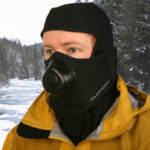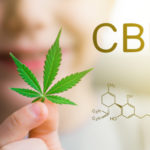Have you been feeling tired, fatigued, depressed, or stressed recently? It could be that you are not getting adequate sleep.
Poor quality sleeping or lack thereof has been associated with several chronic diseases and conditions—such as diabetes, cardiovascular disease, obesity, and depression—which threaten health. A lack of sleep can also be responsible for motor vehicle and machinery-related crashes, causing substantial injury and disability each year.
More than 25% of the U.S. population report occasionally not getting enough sleep, while nearly 10% experience chronic insomnia per CDC (Center for Disease Control) studies. Getting sufficient sleep is not a luxury—it is a necessity—and should be thought of as “vital” for good health.
Advertisement: WebMD (click on photo for more info)

Although the amount of sleep you get each day is important, other aspects of your sleep also contribute to your health and well-being. Good sleep quality is also essential. But, you will meet people who sleep much less than others and seem to do fine. By less – as little at 5 hours each night. However, such are not the norm and do not think that you can do so and have no consequences.
Signs of poor sleep quality include not feeling rested even after getting enough sleep, feeling sleepy when you get to work after you have been up for over an hour, repeatedly waking up during the night, and experiencing symptoms of sleep disorders (such as snoring or gasping for air). Improving your quality of sleep may be achieved through developing better sleep habits or being diagnosed and treated for any sleep disorder you may have.
How Much Sleep Do I Need?
According to National Sleep Foundation, American Academy of Sleep Medicine, and others, the amount of sleep varies with your stage of life. Generally, the younger the person, the more sleep is required. The following table lists the hours of sleep generally required as the norm for your specific age.
| Stage | Age | General Sleep Requirement (hours per day) |
|---|---|---|
| Newborn | 0-3 months | 14-17 |
| Infant | 4-12 months | 12-16 |
| Toddler | 1-2 years | 11-14 |
| Preschool | 3-5 years | 10-13 |
| School-Age | 6-12 years | 9-12 |
| Teen | 13-18 years | 8-10 |
| Adult | 18-60 years | 7 or more |
| 61-64 years | 7-9 | |
| 65 and over | 7-8 |
The real key to good sleep is to practice good sleep hygiene, but if your sleep problems persist or if they interfere with how you feel or function during the day, you should seek evaluation and treatment by a physician familiar with assessing and treating sleep disorders. Before visiting your physician, keep a diary of your sleep habits for about ten days to discuss at the visit. You may wish to include the following in your sleep diary, when you:
• Go to bed;
• Go to sleep;
• Wake up;
• Get out of bed;
• Take naps;
• Exercise;
• Consume alcohol; and
• Consume caffeinated beverages.
Advertisement: Louis Vuitton (click on photo for more info)

So, if you find yourself in need of more sleep, look at some of these methods for help, including age-old remedies such as a warm glass of milk, banana, tart cherry juice, warm bath, etc. We will discuss natural sleeping aids in another article.
Sleep-related difficulties affect many people. Following is a description of some of the major sleep disorders that you should familiarize yourself with. If you, or even someone you know, is experiencing any of the following, you should seek an evaluation by a healthcare provider as soon as you can or, if necessary, a provider specializing in sleep medicine. As you are quickly learning, good health is not simply fitness or good nutrition – it’s all interdependent.
Insomnia
Insomnia is characterized by an inability to initiate or maintain sleep. It may also take the form of early morning awakening in which the individual awakens several hours early and is unable to resume sleeping. Difficulty initiating or maintaining sleep may often manifest itself as excessive daytime sleepiness, which characteristically results in functional impairment throughout the day. Before arriving at a diagnosis of primary insomnia, the healthcare provider will rule out other potential causes, such as other sleep disorders, side effects of medications, substance abuse, depression, or other previously undetected illness. Chronic psychophysiological insomnia (or “learned” or “conditioned” insomnia) may result from a stressor combined with fear of being unable to sleep. Individuals with this condition may sleep better when not in their own beds. Health care providers may treat chronic insomnia with a combination of use of sedative-hypnotic or sedating antidepressant medications, along with behavioral techniques to promote regular sleep.
Narcolepsy
Excessive daytime sleepiness (including episodes of irresistible sleepiness) combined with sudden muscle weakness are the hallmark signs of narcolepsy. The sudden muscle weakness seen in narcolepsy may be elicited by strong emotion or surprise. Episodes of narcolepsy have been described as “sleep attacks” and may occur in unusual circumstances, such as walking and other forms of physical activity. The healthcare provider may treat narcolepsy with stimulant medications combined with behavioral interventions, such as regularly scheduled naps, to minimize the potential disruptiveness of narcolepsy on the individual’s life.
Restless Legs Syndrome (RLS)
RLS is characterized by an unpleasant “creeping” sensation, often feeling like it is originating in the lower legs, but often associated with aches and pains throughout the legs. This often causes difficulty initiating sleep and is relieved by movement of the leg, such as walking or kicking. Abnormalities in the neurotransmitter dopamine have often been associated with RLS. Healthcare providers often combine a medication to help correct the underlying dopamine abnormality along with a medicine to promote sleep continuity in the treatment of RLS.
Sleep Apnea
Snoring may be more than just an annoying habit – it may be a sign of sleep apnea. Persons with sleep apnea characteristically make periodic gasping or “snorting” noises, during which their sleep is momentarily interrupted. Those with sleep apnea may also experience excessive daytime sleepiness, as their sleep is commonly interrupted and may not feel restorative. Treatment of sleep apnea is dependent on its cause. If other medical problems are present, such as congestive heart failure or nasal obstruction, sleep apnea may resolve with treatment of these conditions. Gentle air pressure administered during sleep (typically in the form of a nasal continuous positive airway pressure device) may also be effective in the treatment of sleep apnea. As interruption of regular breathing or obstruction of the airway during sleep can pose serious health complications, symptoms of sleep apnea should be taken seriously. Treatment should be sought from a health-care provider.







